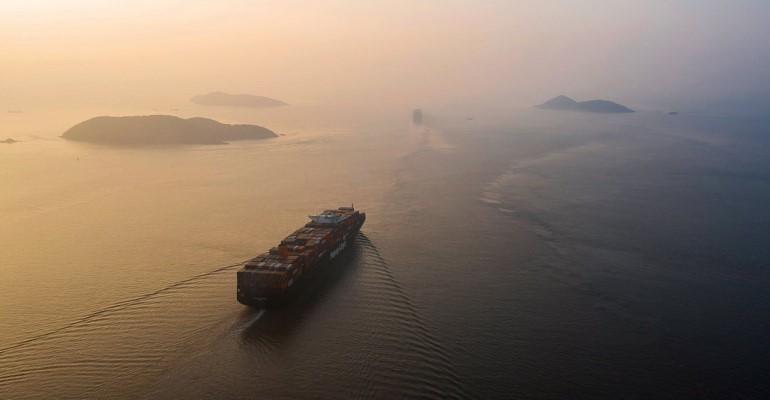In a recent assessment of container line trades, Alix Partners said that “trade flows in North America and Europe are transforming as the impact of nearshoring is starting to be felt,” against a backdrop of “…significant demand and supply imbalances, marked by an oversupply of transportation asset capacity, leading to depressed pricing and ultimately creating financial risks for providers.”
In a February, 2024 note discussing shifts in the liner trades, they wrote on the upcoming termination of Maersk’s 2M alliance with MSC in 2025 and the formation of the Gemini Cooperation with Hapag Lloyd, which is until then part of THE Alliance, along with ONE, Yang Ming, and HMM.
Both nearshoring and the Gemini tie-up figured prominently in the most recent Port of Los Angeles (POLA) media briefing, a monthly webinar hosted by POLA Executive Director Gene Seroka.
Special guest Leo Huisman, APM Terminals’ Regional Managing Director, Americas, talked extensively about these and some other topics, saying: “The nearshoring in the Americas is continuing, especially with spectacular growth of imports in Mexico...I think other countries in Latin America will benefit from this.” In response to a question from Seroka about carriers’ alliances, he said: “The vessels are getting larger, the networks are getting more complex, and the reliability of the liner services is not very good.”
To this point, Huisman who is based in Panama and ‘living the drought’, said: “Gemini is basically re-engineering the whole network setup, that they get to 90% reliability,” emphasizing that cargo shippers had been looking for such improvements for a long time.
But, with larger vessels and more cargo exchanges in ports, some fundamental changes are in the offing; “Reliability is difficult to achieve if you don’t deploy a different network.” He explained that Gemini would be scaling up a number of hubs- which he said “are like shock absorbers of efficient networks”, and deploying new technologies, in order to satisfy their demanding customers.
One example of this paradigm shift in action is Chancay, a port presently under construction by Cosco along the Peruvian coast, north of Callao.
“Cosco is building an ultra-modern port with state-of-the-art equipment; they are working on re-defining how shipping lines will service the West Coast of South America,” said Huisman. “I do believe that with its capabilities, its crane setup, and its water depth, that a lot of the smaller ports in Chile, Peru, and in Ecuador will be served in the future by a different call set- not any more big ships going in directly, but there will be hubbing from that particular port.” Concluding, he said: “For Peru, it will generate hundreds of thousands of containers in trans-shipment, and a different ship system which in the end is to the benefit of importers and exporters.”
On the technology front, Huisman said that ports in southern California with its tough new carbon emissions restrictions had a unique opportunity to be carbon free by investing in equipment with reduced emissions. This approach would also funnel trade flows into Los Angeles and neighboring Long Beach through a number of “Green Corridors” under consideration.
Another technology related concern recently in the news, Biden administration concerns about cyber security surrounding cargo handling cranes manufactured in China (PRC), was unraveled by Huisman, who said “The steel/ assembly is Chinese, but the control systems- which communicate…are non-PRC. They are from countries like Germany, Japan and Malaysia.”
Copyright © 2024. All rights reserved. Seatrade, a trading name of Informa Markets (UK) Limited.
Add Seatrade Maritime News to your Google News feed.  |

